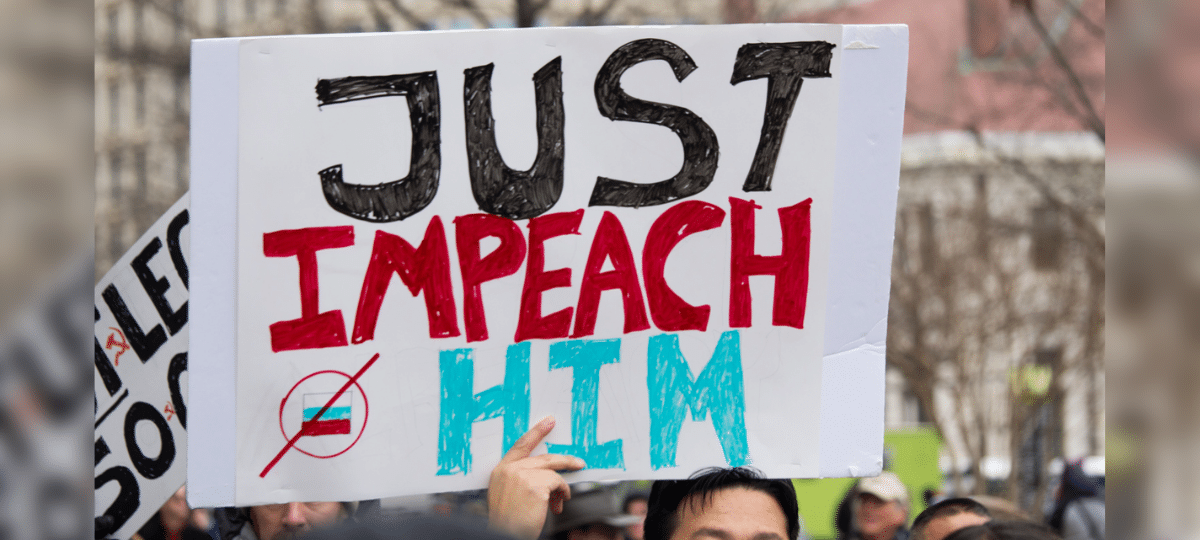The impeachment proceedings against President Trump have fueled all manner of conjecture regarding the proper discharge of foreign policy, hidden motives behind both Trump’s phone call and the ensuing investigation, and everything from the dead-cat bounce of the Mueller Report to the Kurdish policy shift.
But there are a number of questions that, while they should be asked, haven’t been. (Obligatory disclaimer: None of these questions are intended to either excuse or indict the actions of Trump, the impeachment-hearing participants, or anyone else.)
1. Why is the U.S. giving $400 million to Ukraine, anyway?It makes little sense. Europe is providing aid to Ukraine as it reacts to an encroaching Russia, which annexed Crimea in 2014. One can see how EU nations might be concerned about a Russia with Western ambitions, but with 2,800 miles of Europe and another 3,000 miles of ocean between us (in addition to our being $22 trillion in debt and running the first trillion-dollar budget deficit in history), foreign aid (of all types) is one of a thousand potential starting points for getting our fiscal house in order. Doing so would also ensure that America has clean hands, where the tragic effects of the fog of war are concerned.
2. Exactly how many U.S. government employees are dedicated to dealings with Ukraine?
The parade of present/former U.S. special deputy chief acting assistant provisional envoy policy liaison advisors (and their assistants, drivers, food tasters, etc.) tasked with providing aid, defense advice, and more to Ukraine is staggering — as must be their salaries, and will be their pensions and retirement benefits.
As only one of some 195 countries on Earth, and measuring 230,000 square miles (45th largest) with a population of roughly 42 million (33rd largest), the mind fairly boggles at the endless procession of U.S.–Ukraine apparatchiks — especially in light of the fact that the U.S. has only had a diplomatic relationship with it for 28 years and the fact that most Americans aren’t comfortable with world maps. Now consider how many must be assigned to China, India, Russia, Brazil, England, France, and so forth. Put aside your conspiracy theories: this is the Deep State in action.
3. Isn’t most of what the U.S. government does, indeed what any government does, an implicit or explicit quid pro quo?
The IMF explicitly ties aid to requirements; the UN Security Council recently added subjective guidelines by which it can reduce or eliminate aid. U.S. military aid packages have and do, explicitly or implicitly. Indeed, the so-called “Washington Consensus,” widely adopted (and structured jointly between the U.S. Treasury, the World Bank, and the IMF), sets prescriptions for crisis-addled nations to follow, often taking the form of conditions for the extension of loans internationally.
Politics — local, nationally, or internationally — is always and everywhere defined by quid pro quo arrangements, whether the transacted stipulation is immediately actionable or indefinitely termed.
4. Is the issue not the quid pro quo, but rather the naming/targeting of a specific individual (who happens to be an American)?
One might point out that in this case, the resumption of aid to Ukraine was allegedly tied to the initiation of an investigation of Hunter Biden and his ties to Burisma Holdings — an individual, and an American. But previous examples of exactly that type of activity by U.S. officials, from the executive branch on down, are numerous: the Obama administration put pressure on Ecuador over a specific individual, as did the Bush 45 (in this case, three individuals), Clinton, and other administrations.
It’s hard to imagine that mentioning an individual by name for investigation by a foreign entity would be so shocking, especially when the American public has seemingly swallowed and digested the news that the U.S. government reserves the right to kill American citizens suspected (yes: suspected; not even convicted, even in absentia) of terrorist acts all over the world.
5. Given the numbers in the House of Representatives and Senate, the House is almost sure to vote to impeach, while the Senate is almost certain not to convict. With an outcome this certain, why are we even going through with this?
Impeachment for Trump has been in the cards, so to speak, since long before he was elected. Needless to say, this is a partisan effort, likely rooted in both the need for Democrats to demonstrate material action against Trump with an election coming, and as a response to the tepid polling performance of its decidedly left-wing shelf of candidates seeking the party nomination.
And incidentally, some of the early impeachment talk focused upon policy measures which are technically not “high crimes and misdemeanors,” but should be. Alas.
Alexander Hamilton, writing in Federalist 65, said that the purpose of impeachment should be to remove a president who performs actions that “relate chiefly to injuries done immediately to the society itself.” In this case, it is easy to imagine a vast number of worthy targets in the annals of American history.
If Congress wants to zero in on abuses of power — using unconstitutional power to reward and punish groups at the expense of the American people — they could look at Trump’s near-daily antics with the use of the taxing power called tariffs. Again, alas.






1 comment